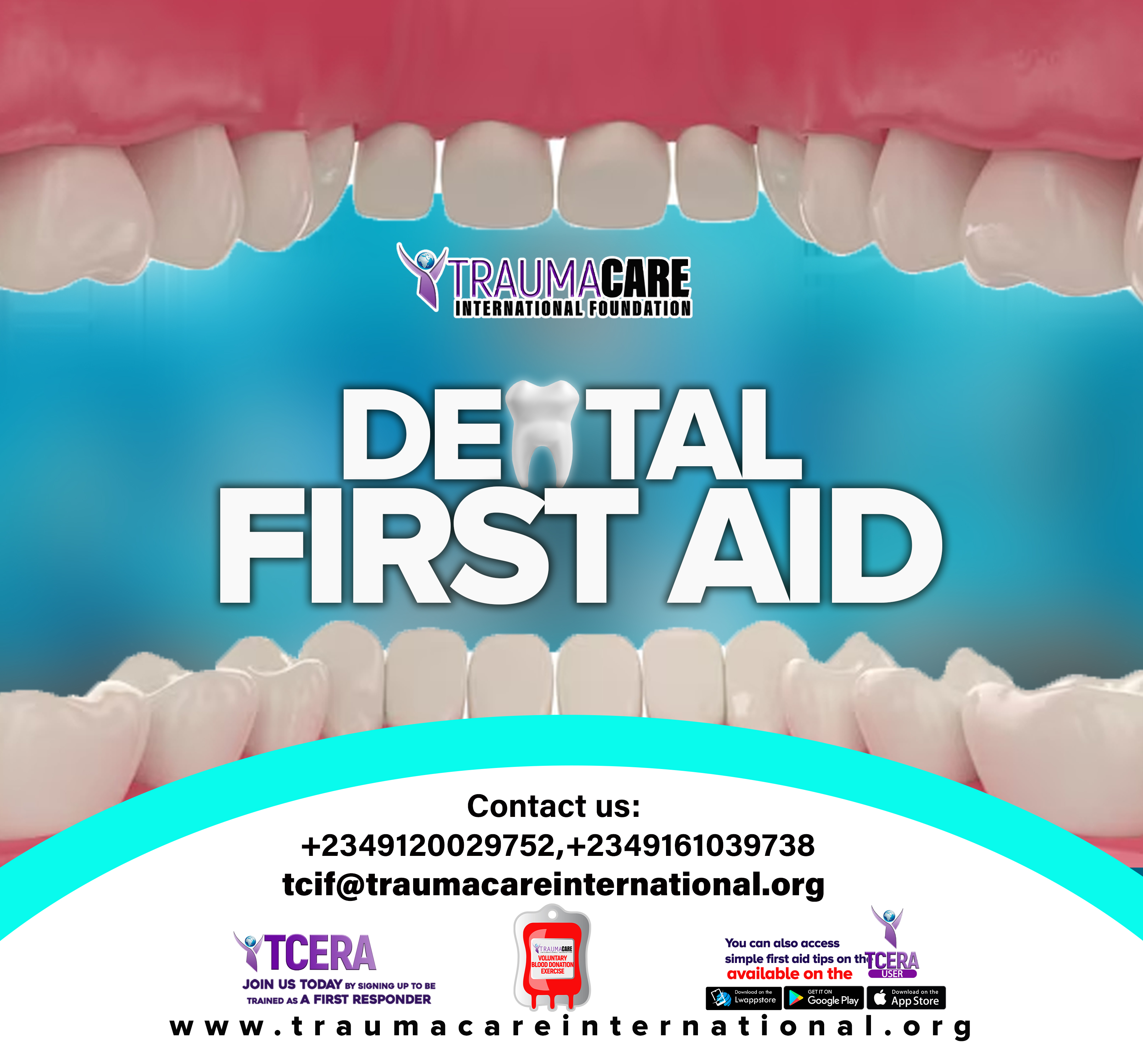Dental first aid refers to the immediate care or treatment provided to a person experiencing a dental emergency. Here are common dental emergencies and appropriate first-aid steps for each:
1. Toothache
• Action:
- Rinse your mouth with warm salt water to reduce swelling and clean the area.
- Use dental floss to remove any food stuck between your teeth.
- Over-the-counter pain relief medication can be taken to alleviate discomfort.
- Avoid placing aspirin directly on the tooth or gums.
2. Knocked-Out Tooth (Avulsed Tooth)
• Action:
- Handle the tooth by the crown (the top part), not the root.
- Rinse the tooth gently with water to clean it, but do not scrub or remove any tissue.
- If possible, place the tooth back in its socket. If not, keep it in a container of milk or saline solution.
- Seek emergency dental care immediately.
3. Broken or Chipped Tooth
• Action:
- Rinse your mouth with warm water to clean the area.
- Apply a cold compress to the outside of your mouth or cheek to reduce swelling.
- If there is bleeding, apply gauze to the area until it stops.
- Contact a dentist as soon as possible.
4. Lost Filling or Crown
• Action:
- If the filling is lost, keep the area clean and avoid eating hard foods.
- If a crown is lost, you can temporarily reattach it with dental cement or toothpaste.
- Schedule an appointment with a dentist as soon as possible.
5. Dental Abscess
• Action:
- Rinse your mouth with warm salt water to help alleviate discomfort.
- Avoid squeezing or trying to pop the abscess.
- Over-the-counter pain relief can help manage discomfort.
- Seek dental care immediately as abscesses can lead to serious infections.
6. Orthodontic Emergencies (e.g., Loose Brackets or Wires)
• Action:
- If a wire is poking into your gums or cheek, use a pencil eraser to push the wire down or cut it with wire cutters.
- Bring any loose pieces to your orthodontist.
- Schedule an appointment for repairs as soon as possible.
General Tips for Dental First Aid
• Always keep a dental first aid kit at home, which should include items like dental wax, pain relievers, gauze, and antiseptic mouthwash.
• Ensure that the contact information of your dentist is available for emergencies.
• If you’re unsure about the severity of a dental injury, it’s always safer to consult with a dental professional.
When to Seek Professional Help
• Persistent pain that does not resolve with over-the-counter treatment.
• Any dental injury that results in bleeding that does not stop after 10 minutes of applying pressure.
• Swelling that is significant or getting worse.
• Signs of infection, such as fever or persistent bad taste in the mouth.
Always consult with a dental professional for guidance tailored to your specific situation or emergency!





What do you think?
0 Responses
To Comment, you must Sign In
Be the First to Post on this Topic